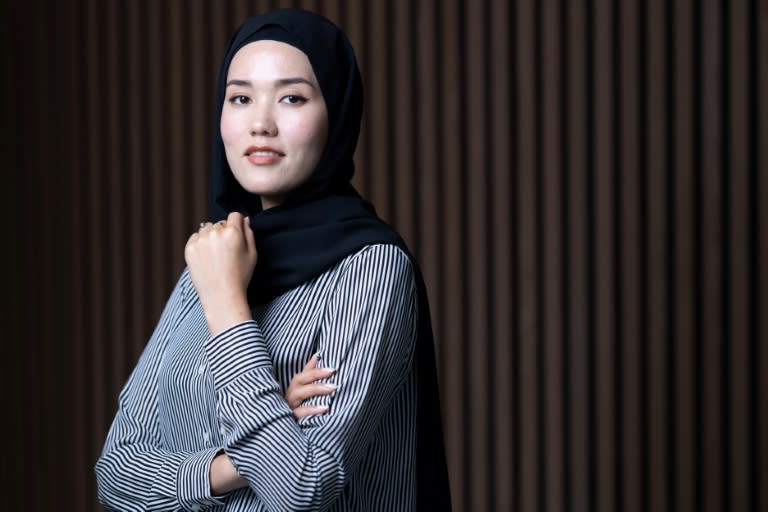Afghan Masomah is “proud” to be a voice for refugees at the Olympics


Masomah Ali Zada is “proud” to “represent all those who have been forced to leave their country” in her role as chef de mission of the refugee team at the Paris Olympics, she told AFP.
The 28-year-old Afghan moved seamlessly from an Olympic cycling career for the refugee team at the 2020 Tokyo Olympics to a managerial role and will be “the spokesperson for the 120 million displaced people around the world”.
Masomah will be in charge of 36 athletes from 11 countries competing in 12 sports at the Games, which run from July 26 to August 11.
“It is a great enthusiasm and an enormous honour for me to represent, together with this unique and special team, those people who have been forced to leave their country,” Masomah told AFP in French during a roundtable interview at the headquarters of the organisers of the Paris Games to mark United Nations Refugee Day.
Masomah has achieved a lot in the eight years since she arrived in France: she was granted asylum after being refused a visa on her first application and recently completed her Masters in civil engineering at the University of Lille.
Masomah can empathize with the refugees because she was one herself – she lived in Iran from the age of two to ten before returning to Afghanistan.
“I know what it means to be a refugee,” said Masomah, her eyes accentuated with eyeliner and her head covered with a black veil.
“I had bad experiences that made me doubt whether I would ever be respected and it raised a lot of questions about my future.”
Masomah admits that she is in a better position than her compatriots in Afghanistan.
“When I compare my situation here in France, where I can live and travel alone, with that of the women in Afghanistan… I am sad and disappointed that I cannot do anything for them,” said a visibly moved Masomah.
Since returning to power in August 2021, the Taliban have used their strict interpretation of Islam to erode women’s rights.
Women are effectively excluded from sport because the rules are based on the Taliban government’s strict interpretation of Islam and deny them access to public spaces such as parks and gyms, as well as access to education and certain professions.
– “Every dream is possible” –
Nevertheless, following intensive talks between the International Olympic Committee (IOC) and the Afghan National Olympic Committee, Afghanistan will come to Paris with a team of six, three men and three women.
The latter told AFP that all six team members, except one, were stationed outside the country.
“I am so happy that there will be three Afghan women and that they will be equal to the men,” said Masomah, who added that she will cheer them on in their competitions.
Masomah, who belongs to the long-persecuted Shiite Hazara minority, said she was subjected to insults and stigmatization while cycling in Afghanistan after returning from Iran.
She said people threw stones and insulted her as she cycled at high speed through Kabul, but that only spurred her on and she managed to make the national team at just 16 years old.
“I grew up in the midst of great inequality and insecurity,” she said.
“We lived in fear, but when I got on my bike I felt free. I forgot my problems.”
“I felt empowered, whereas in Afghanistan women are seen as incapable of certain things,” says Masomah, who eventually left the country due to hostility from conservative elements of Afghan society.
Masomah, on the other hand, is aiming for a career in sport and given how far her determination and courage have taken her so far, it is not out of the question that she will succeed.
“You have to work really hard to fulfill your dream,” she said.
“I had to put in three times as much effort as a French student: between learning the language, university courses and sports.”
The fulfillment of her dream bore fruit in Tokyo.
“I was living my dream when the crowd called my name,” said Masomah, who finished last in the time trial, one of the rare events where spectators were allowed due to Covid restrictions.
“Afterwards I told myself that any dream can come true because I was there.”
est/alu/pi/gj



